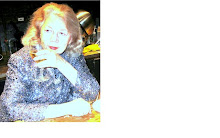Online Only
The Book Bench
Loose leafs from the New Yorker Books Department.
« Talking Breivik
Main
In the News: Restricted Readings, A Room with No View »
July 28, 2011
A Museum for Joseph Brodsky
Posted by Katia Bachko

IMG_5842.jpg
Brodsky’s typewriter, currently housed in the Anna Akhmatova Museum, in St. Petersberg, Russia.
In his piece about Joseph Brodsky that appeared in the magazine in May, Keith Gessen wrote about the Russian poet’s problems with real estate. Like almost every citizen of the Soviet Union, the Brodskys had their housing needs managed, diplomatically speaking, by the government. Privacy was scarce in the four hundred and thirty square feet that mother, father, and son shared. Theirs was a parquetted corner in a sprawling communal apartment that was shared by several families.
After the death of his parents, who lived out their lives in that Leningrad apartment, Brodsky attempted to explain the absurdity of the Soviet housing system. In an essay called “In a Room and a Half,” he wrote:
Property laws are arcane everywhere, but some of them are more arcane than others, especially when your landlord is the state. … it is the clerks in the borough property office who decide what you are going to get. Bribery is of no use, since the hierarchy of those clerks is, in its turn, terribly arcane, and their initial impulse is to give you less.... Apart from pure arithmetic, what goes into their decision is a vast variety of assumptions never articulated in law, about your age, nationality, race, occupation, the age and sex of your child, social and territorial origins, not to mention the personal impression you make, etc. Only the clerks know what is available, only they judge the equivalence and can give or take a few square meters here and there. And what a difference those few square meters make! They can accommodate a bookshelf or, better yet, a desk.
Now, or at least in the considerably near future, Brodsky’s bookshelves and desk may be exhibited in their original places in his old flat, which is being converted into an apartment-museum. When the tide of government and literary preference turned, Brodsky, who was never allowed back into the U.S.S.R. after his emigration, finally became in Russia what he had long been in the rest of the world, a celebrated poet.
After much negotiating with the tenants of Brodsky’s former flat—which was still a communal apartment in recent years—a group of foreign and Russian sponsors has raised enough funds to convert the space into a museum. In this clip from a Russian newscast, you can see the apartment in 2010, before the restoration got under way. But the museum remains at least a year in the making, so that the space can be remodeled for the public, and Brodsky’s various possessions can be gathered from the friends to whom they were entrusted for safekeeping decades ago.
IMG_5841.jpg
The Postcard Wall.
In the meantime, a visitor to the Anna Akhmatova museum, in St. Petersburg, may stumble upon a small room dedicated to Brodsky. It contains his effects from the study at 44 Morton Street, his home in New York. On display are Brodsky’s books and typewriters, as well as copies of the postcards he sent to his parents from his various travels around the world. Akhmatova took Brodsky under her wing when he was a young poet, so it’s fitting to see her protégée remembered under her roof. But it made me smile when I visited to think that even after a Nobel Prize—and fifteen years after his death—Brodsky must still share living quarters in his homeland, as he waits for a museum of his own.
Keywords
Anna Akhmatova;
Joseph Brodsky;
Keith Gessen;
New York;
Soviet Russia;
U.S.S.R.;
literature
Read more http://www.newyorker.com/online/blogs/books/2011/07/a-museum-for-joseph-brodsky.html#ixzz1TW0bopY5


Секс в поэзии Бродского. Наблюдения с комментариями Михаила Армалинского http://www.mipco.com/win/GEr36.html
ReplyDelete